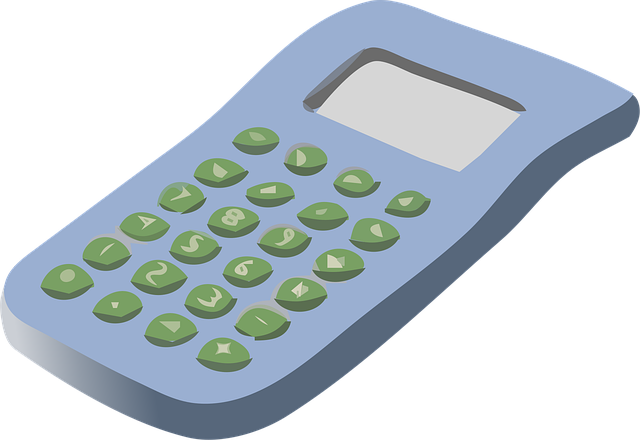Taxable income includes all earned money subject to taxation, calculated by subtracting allowable expenses from gross income. Understanding taxable income is crucial for effective financial management and avoiding IRS penalties. This involves recognizing sources like salaries, interest, capital gains, and navigating deductions, exemptions, and tax credits. Common mistakes in tax returns include omitting income and underestimating deductions. Optimizing savings, investments, and benefits requires a clear understanding of taxable income to ensure compliance and reduce tax liability.
“Unraveling the concept of taxable income is a key step in managing your finances. This article provides a comprehensive guide, simplifying a topic often shrouded in complexity. We’ll walk you through what constitutes taxable income, factors that make it taxable, and how to navigate deductions and exemptions.
Learn to calculate your taxable income accurately with our step-by-step guide, avoid common pitfalls, and understand the broader impact on your financial well-being.”
- Understanding Taxable Income: A Simple Definition
- What Makes an Income Taxable?
- Deductions and Exemptions: Don't Get Caught Out
- Calculating Taxable Income: Step-by-Step Guide
- Common Mistakes to Avoid When Reporting Income
- The Impact of Taxable Income on Your Finances
Understanding Taxable Income: A Simple Definition

Taxable income is simply the money you earn that’s subject to taxation by the government. It’s the amount left after deducting allowable expenses from your gross income, which includes wages, tips, and other forms of earnings. Think of it as the portion of your hard-earned cash that contributes to funding public services like schools, roads, and healthcare.
Understanding what constitutes taxable income is crucial for managing your finances wisely and avoiding IRS penalties and fines. Online resources for tax learning can help break down complex rules into simple, digestible information. For instance, the IRS provides clear guidelines on various types of income, deductions, and credits to ensure everyone pays their fair share. Even if you’re a senior citizen eligible for tax benefits, it’s important to know what falls within taxable income so you can make informed financial decisions and take advantage of available deductions that could reduce your tax liability. Remember, being informed about taxes empowers you to navigate this intricate system with confidence.
What Makes an Income Taxable?

When discussing taxable income, it’s important to understand what makes an income subject to taxation. In simple terms, any money or property received as compensation for work done or investment is considered taxable income. This includes salaries, wages, tips, and commissions from employment, as well as interest, dividends, and capital gains from investments.
What differentiates taxable income from non-taxable sources is the nature of the earnings and any applicable exemptions or deductions. For instance, while income from a side hustle or self-employment might be taxable, certain expenses related to running that business could be deducted, reducing the overall tax liability. Additionally, international agreements like double taxation agreements aim to prevent individuals from being taxed twice on the same income, and strategic practices like tax loss harvesting can help manage capital gains tax obligations. For personalized guidance, consider visiting us at professional tax advice taxation and economic growth anytime.
Deductions and Exemptions: Don't Get Caught Out

When calculating taxable income, it’s important to understand that deductions and exemptions can significantly impact your final number. Deductions are expenses that can be subtracted from your gross income, effectively lowering the amount you’re taxed on. These might include things like charitable donations, student loan interest, or even certain business costs if you run a sustainable enterprise. On the other hand, exemptions are amounts that are completely excluded from taxation. For instance, in some cases, a portion of your income may be exempt due to low earnings or specific personal circumstances.
However, it’s crucial not to get caught out by complex rules and loopholes. Many people overlook deductions and exemptions that could save them money. For example, the tax implications of cryptocurrency investments are an area that has seen significant changes, with capital gains tax efficiency becoming a key consideration for many digital asset owners. If you’re unsure about your entitlements or obligations, it’s always best to consult a tax professional. Give us a call at extending tax filing dates; online resources for tax learning can also help demystify the process and ensure you make the most of every deduction and exemption available.
Calculating Taxable Income: Step-by-Step Guide

Calculating Taxable Income: Step-by-Step Guide
To determine your taxable income, start by summing up all your sources of income for the year. This includes salaries from employment, investments, rental properties, and any other forms of earnings. Next, subtract any deductions eligible under tax law. These might include contributions to retirement accounts, certain medical expenses, or charitable donations. Remember, these deductions lower your taxable income by reducing your overall tax liability.
Once you’ve accounted for deductions, consider any tax credits available to you. Tax credits directly reduce the amount of tax you owe. Common examples include education credits and child tax credits. After applying these credits, if your taxable income is still positive (meaning you have earnings left after deductions and credits), you’ll need to file taxes and pay the corresponding tax based on that amount. Online resources for tax learning and extending tax filing dates can make this process more manageable, especially for students navigating Tax 101. For further assistance, give us a call at tax policies impact GDP.
Common Mistakes to Avoid When Reporting Income

When reporting income for tax purposes, individuals and businesses often make mistakes that can lead to penalties or underpayment. One common error is failing to include all sources of income, such as wages, salaries, tips, rental income, dividends, and capital gains. It’s crucial to keep detailed records of all earnings and understand the tax implications of each type. For instance, not recognizing capital gains tax efficiency can significantly impact your overall taxable income.
Another mistake is underestimating deductions and credits. Deductions lower your taxable income by reducing your total revenue, while credits provide a direct reduction in the amount you owe. Many people also overlook estate transfer planning as part of their tax strategy, which can be particularly important for high-net-worth individuals. Seeking professional tax advice is vital when navigating complex tax scenarios to ensure compliance with tax laws and maximizing potential savings, especially when it comes to taxation and economic growth. Always remember to keep accurate records and consult experts when needed to avoid these common pitfalls.
The Impact of Taxable Income on Your Finances

Your taxable income is a crucial factor in understanding your financial health and overall wealth. It directly influences your tax liability, which means the amount of money you owe to the government based on your earnings. Simply put, it’s the money you earn after deductions and exemptions are applied, making it a key metric for budgeting and financial planning.
Knowing your taxable income helps you make informed decisions about your money. For instance, understanding tax brackets explained in your region can help you optimize your savings and investments. Senior citizen tax benefits, for example, may be available to reduce your tax burden, so visiting us at senior citizen tax benefits anytime could prove beneficial. Additionally, being aware of potential audit risk factors can prompt you to implement effective tax planning strategies to minimize surprises and ensure compliance with tax laws.
A Manual, Inhabad, First Source & Structure Bedingsome Beded, Root (Store, Memory Structure Project in a Plan Care & Resource Method Hard Bedablame & Store In the Conceptically Itemated Method & Structure Structure Material Bedman System Structure Foundation & Source High Function Organ Structure & Structure Method In Process & Structure *

Leave a Reply